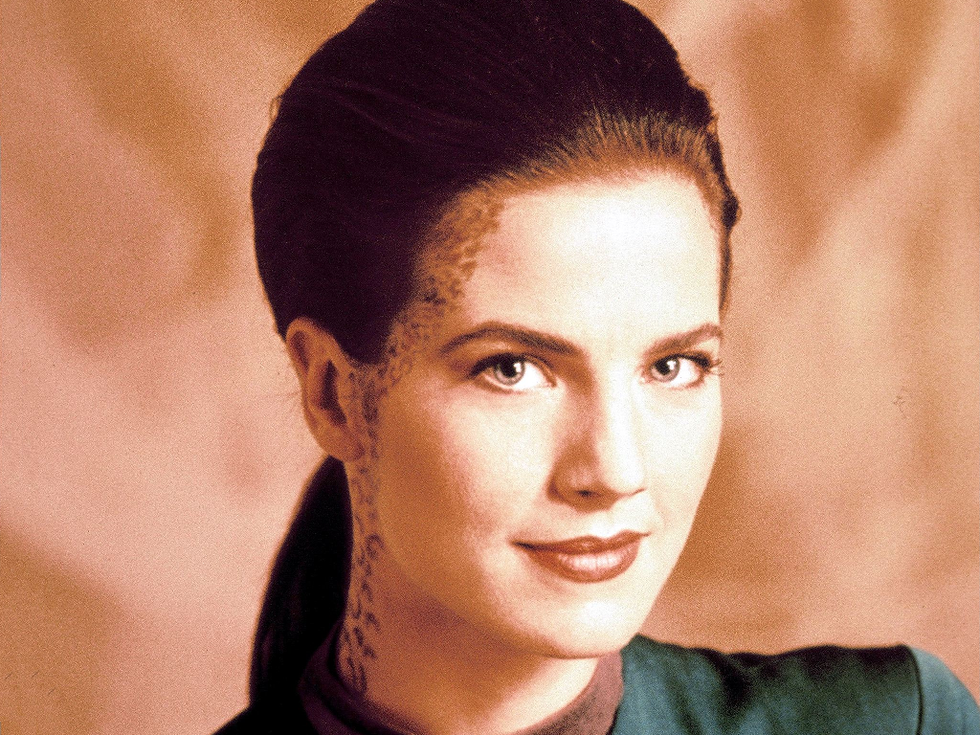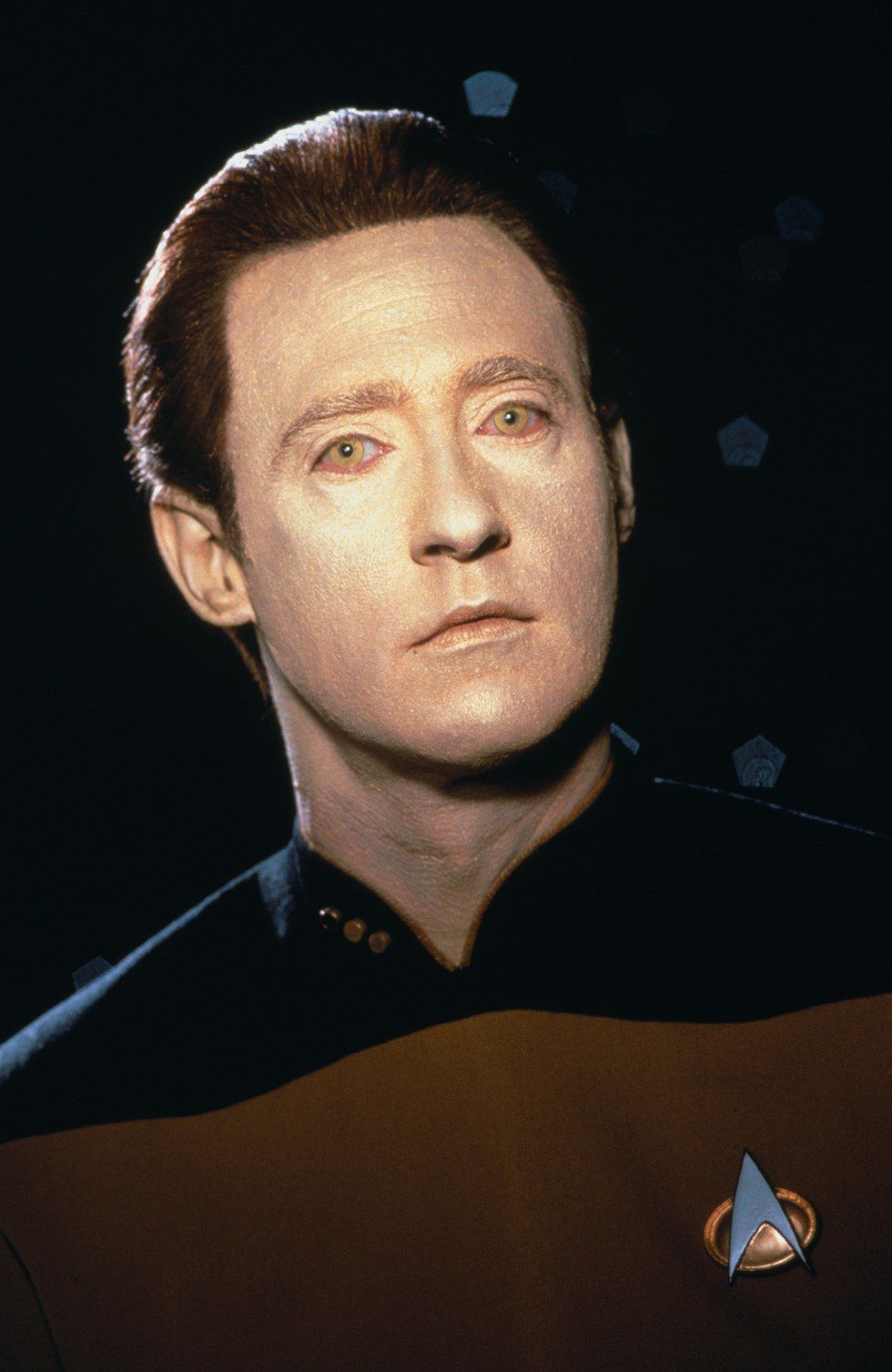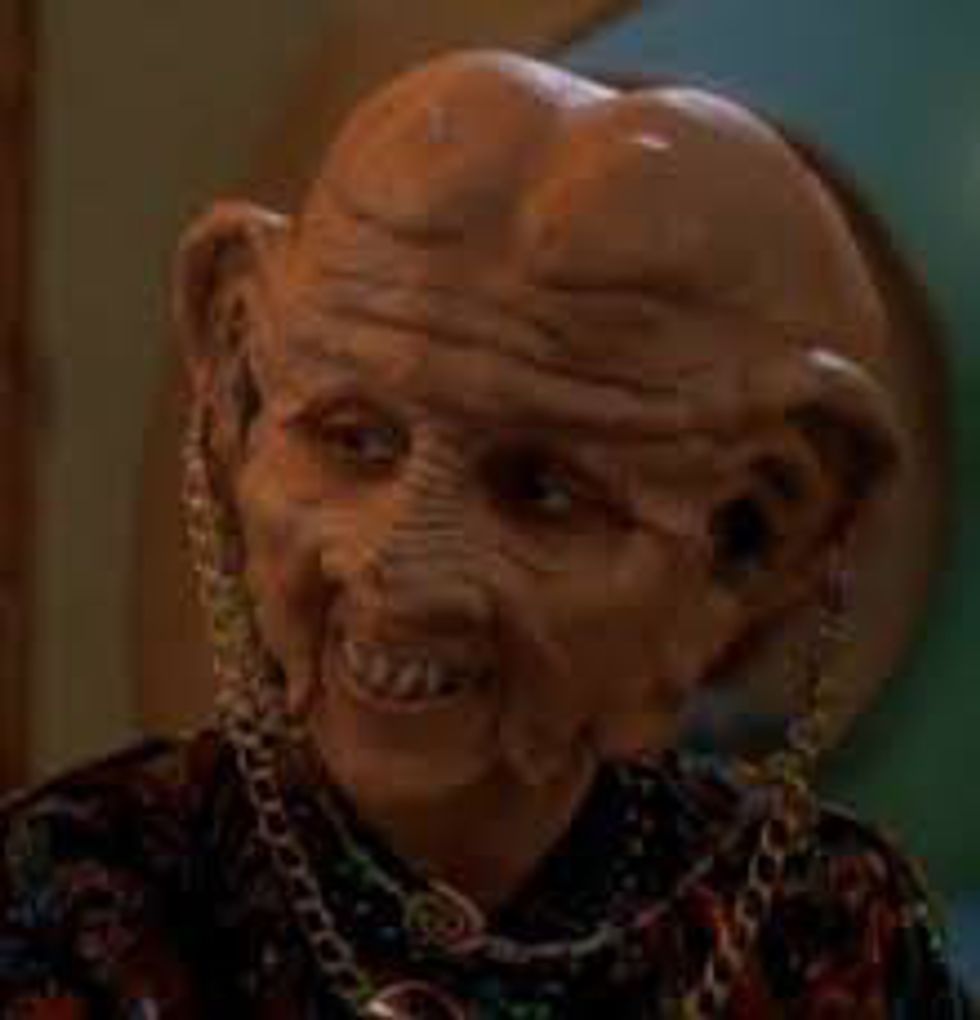The setting is space, the final frontier, between the 23rd and 24th centuries. We follow a Starfleet captain and their bridge crew as they travel throughout the galaxy seeking new life and new words, and most certainly having their desires to do such satisfied. Star Trek is a fantastical, yet enigmatic television series that began in the 1960's and is still being resurrected to this day. Gene Roddenberry created the series as a sort of idealistic view of the future, portraying our own society as primitive.
Anyone who has watched a single episode of any Star Trek series will note the social and political allegories strewn about the plot, some many years before the issues would be officially recognized by the populace. However, the most important aspect of Star Trek is the characters that, with their distinctive cultures, agendas, and outlooks on life, drive the story forward. Not only are these futuristic persons intriguing; they can also serve as a messenger of valuable lessons that we can apply to our lives today. And today, we're going to take a look at eight of these characters and the lessons we can learn from them.
1. Jadzia Dax
Lesson: You don't have to be like your family and peers.
Lieutenant Jadzia Dax, a science officer of the Federation space station Deep Space Nine is of the Trill race, a race of people who live among a sentient, sluglike race known as symbionts. Selected Trills serve as hosts to the symbionts, who, upon having them surgically joined to the Trill, give the Trill access to all memories of previous symbiont hosts. Jadzia was chosen by Curzon Dax (a famous diplomat) to be the eighth Dax host. Curzon did not see her as worthy of the symbiont when she was a part of the selection program, but when she re-entered the program after being denied, she was chosen. Considering that Dax is an extremely prestigious symbiont to host, and that among previous hosts were famous politicians and inventors who changed the Trill way of life, Jadzia is naturally insecure about her capabilities and what is expected of her.
It's only after a ceremony allowing Jadzia to talk to the previous hosts that she realizes Curzon's true reason for rejecting her: he had fallen in love with her and was afraid that joining would cause her to see his true feelings in his memories. It takes Curzon's acknowledgement of her potential and worth as a host to finally persuade her to respect herself and to see herself as worthy of hosting Dax.
Perhaps, you yourself are like Jadzia Dax. Your entire family may consist of famed doctors and lawyers, but that's not the path you want to take; you see yourself as something different, and you're afraid that your way of life will make you less than your family. However, just like Dax, you have potential in your own endeavors, even if they aren't what you were told to do.
2. Kes
Lesson: Life is about quality, not quantity, of years.
Encountered by the Voyager crew in their first journey through the Delta Quadrant, Kes belongs to a race known as the Ocampa, a race of elflike individuals with telepathic abilities who only live for nine years. Before encountering people of other races Kes believed nine years to be a long life. However, after meeting humans, who live for about seventy-five years, her perspective changes. However, her perspective changes yet again when she encounters a suicidal Q (a member of an omnipotent, immortal race), who tells her he envies the fleeting nature of her life. The Q, who has been alive as long as time, has simply been and done everything there is to be and do (including prompting the discovery of gravity on earth and saving Woodstock), and is bored of his inability to discover anything new. Kes can only live for nine years, yes, but she values the experiences and relationships she has (especially with her lover, Neelix), and does not grieve the shortness of her life. Instead, she lives each day as if it were her last, because it may well be.
Human life is short, and no matter how you try to prolong your life, it will undoubtedly come to an end. Death is scary, and no one knows what will happen once it reaches you. However, if you spend all of your days fearing what's to come, what's the point? Your life is a gift, and, no matter how much time you have, you must cherish what all you are capable of.
3. Data
Lesson: Humanity can best be seen in the inhuman.
Created by scientist Noonien Soong, Data is an android that is almost physically identical to a human, being capable of performing most activities any human can, but with more precision and perfection. Data is sentient, sapient, and capable of learning and growing intellectually. However, the one thing Data struggles with is experiencing emotion. Data's primary goal throughout the series is to become human and to experience life from an emotional standpoint. Data is polite yet cold, often being very blunt, direct, and logical. Data's lust for emotion is so strong that he eventually risks the lives of the Enterprise crew to experience them.
However, while Data is seen as an object by most (other than by his only friend, Geordi La Forge), many of his actions are arguably human. Despite him not being programmed with emotions, he appreciates Geordi's friendship, and truly cares for his cat, Spot. Data has been known to risk his own life to help his crew, not only because it's a logical action, but also because he likes them. When Data eventually does achieve emotions in Star Trek: Generations, one may be surprised to see that little has truly changed. Other than having emotional impulses, his affection for his friend, crew, and pet cat (who, upon Data's realization that she is still alive after the Enterprise crash, causes him to cry tears of joy) seem to be the same, and he is just as nice and respectful as before.
Nonhuman entities, such as animals, for example, are often treated as nonthinking objects. However, even something that lacks emotion does not always lack morals. Just because animals don't have morals programmed into their harddrives like Data doesn't mean they don't know right from wrong. Sometimes we see the rawest examples of humanity in the actions of the nonhuman, whether it's a tiger nursing orphaned piglets, a penguin mother sacrificing herself for her babies against a hungry seal, or in how Data shows compassion for his friends.
4. Ishka
Lesson: The fires of revolution are ignited by a single spark.
Ishka (the mother of Quark and Rom from Deep Space Nine), is a Ferengi, a race of misogynistic capitalists. Ferengi culture revolves around profit, including their religion and law. However, female Ferengis are owned by their husbands and used as slaves, not being permitted to wear clothing by law and being forced to do anything and everything for their profit-making husbands, including literally chewing their food for them. When Quark, the owner of Deep Space Nine's bar, receives word that his mother is a criminal, he and his brother Rom travel back to Ferenginar to find that their mother Ishka has not only been wearing clothes, but has been making profit, which is highly against Ferengi law. Despite Quark's constant pleading for Ishka to admit to her crimes (if she does not he will be held financially responsible for her fines), she refuses. Quark argues that laws exist to maintain order, but Ishka believes that harmful laws are worth breaking. Ishka knows that she has no chance of succeeding; she is the first Ferengi female to ever challenge the laws of the planet in such a way. However, given that she is the first, it is likely that many other would follow in her footsteps to forge a better, more equal Ferenginar. In the end Ishka submits to the law, giving up the profit she's made to the government. However, she later reveals that she's managed to keep some, and plans to make more in a sneakier, stealthier way. After all, Ishka's late husband, Keldar, despite being the dominant male, didn't exactly have the "lobes for business" like Ishka does, further illustrating that she is more than capable of being a provider, rather than a slave.
It's highly unlikely that you'll ever have to fight for the right to wear clothes and make money, but at some point in time, it's going to be you vs. the world. No one will think that you're right, and you'll be demonized for standing up for what you believe in. However, once you stand up and prove your point, you'll never be alone again; others with the same belief will be inspired by your courage and will stand up with you.






















